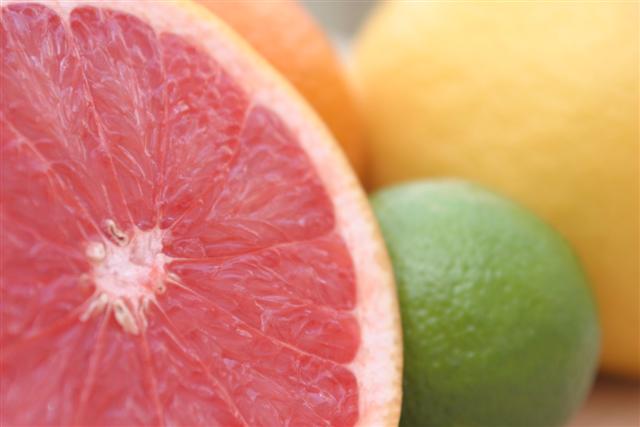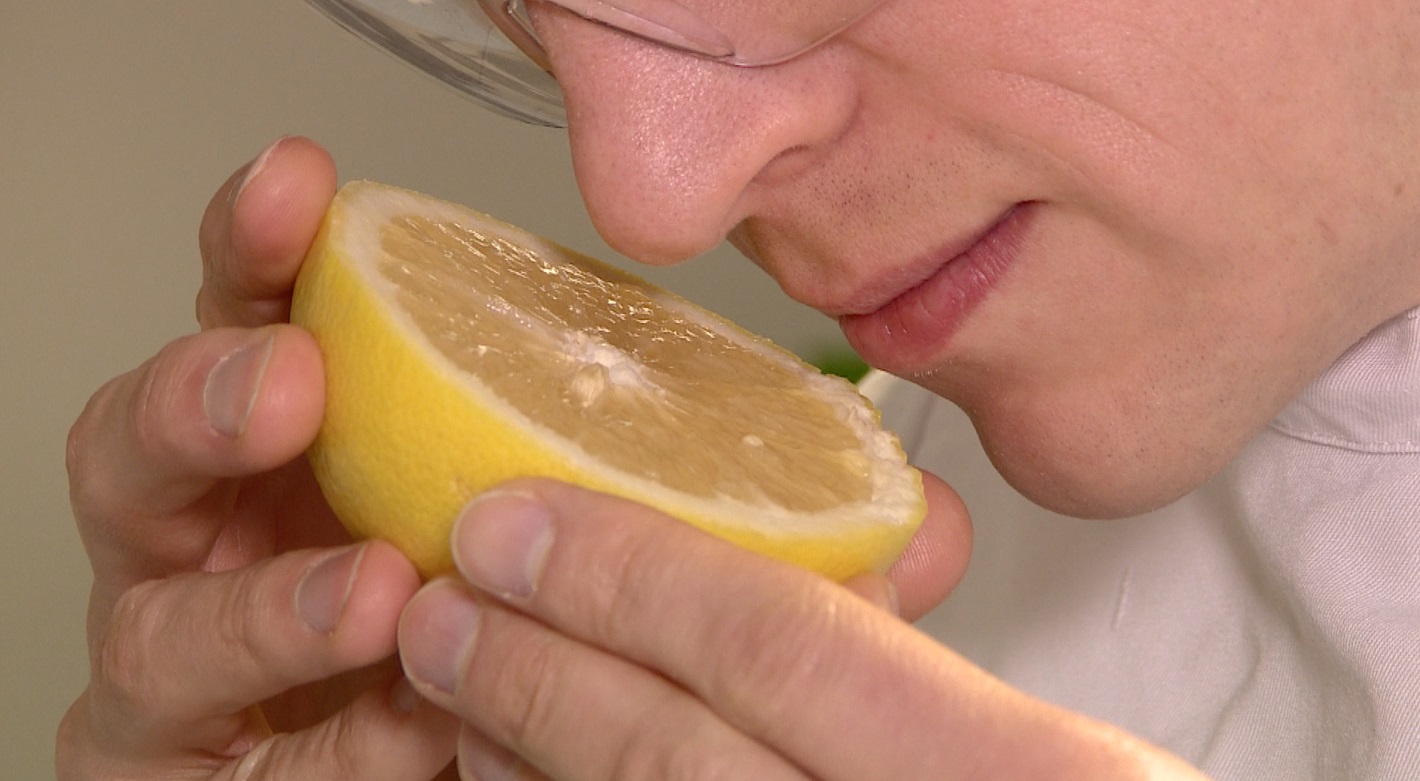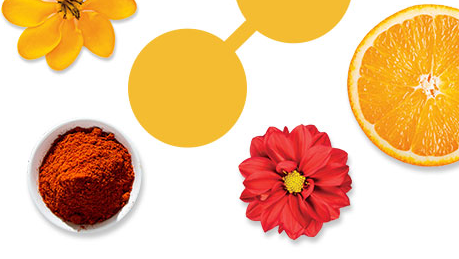Slice open a grapefruit and a volatile molecule full of flavour hits you. Nootkatone, used in citrus soft drinks, confectionary and perfumes, is one of the most challenging ingredients to access in the world and costs around the same as beluga caviar.
But now, years of research by University of Oxford spin-out company Oxford Biotrans are about to bear fruit with a new and natural way to produce it. The molecule, that helps give grapefruit their taste and scent, will be manufactured and marketed with international supplier of aroma chemicals and essential oils, De Monchy Aromatics.
The flavour ingredient has challenged scientists worldwide because of its highly complex structure. It is a plant terpene – a class of natural compound that is produced by plants in tiny amounts via some of the most complex reactions in biology. It takes around 400 tonnes of grapefruit to produce 1kg of nootkatone.
The Oxford Biotrans scientists have found a way to let orange trees do most of the work, followed by an enzyme called cytochrome p450. Oranges produce a very similar compound to nootkatone called valencene. The orange market is much larger than grapefruit and, even in years when orange harvests are poor, valencene supply is plentiful.
Add one oxygen atom and remove two hydrogen atoms and you have the elusive grapefruit flavour extract. But scientists have never before found a way to make these small changes on a commercial scale without using chemicals. The Oxford Biotrans scientists focused on cytochrome p450 because it is well known for adding oxygen atoms to molecules in nature. For example, in humans it helps us eliminate toxins because the oxygen makes them more water soluble. In plants, it helps build defence chemicals.
By making small, precise changes to cytochrome P450, a form of it was identified that is able to react with valencene. The first step in the new, more sustainable process involves producing this enzyme on a commercial scale. This synthetic biology is carried out by a company that makes enzymes for the food industry using fermentation. Creating enzymes for food production is well-established, the most well-known example being an enzyme that helps make most of the world’s cheese.
In the second part of the process, the enzyme and valencene are added to water and the resulting reaction creates nootkatone. The nootkatone is distilled from the mixture and no traces of the enzyme are in the final product.
The creation of valencene by orange trees and the reaction with the enzyme are natural processes. In line with strict EU and Food Standards Agency guidelines, the final product will be labelled as natural. The definition is wider elsewhere, but in the UK and EU it is only applicable to ingredients produced by appropriate physical, enzymatic or microbiological processes.
This is just the start of the story for the newly created enzyme technology. It has potential to provide a stable supply of other flavours and fragrances that are environmentally and economically challenging to access.
“After 20 years of research, we are proud to be the first in the world to bring a new natural source of highly valued grapefruit flavour ingredient to market on a commercially viable scale,” says Oxford Biotrans CEO Jason King.
“As consumer demand for natural flavours and fragrances continues to grow, this collaboration puts us at the leading edge of a highly competitive market as well as ushering in a new phase of manufacturing for De Monchy Aromatics,” says Director Henry Gill.
Quotes about the research and new technology:
Steve Bagshaw, Chair of the government-sponsored Industrial Biotechnology Leadership Forum:
“Although natural chemicals are highly valued in health, food, medicine and agriculture there is a move away from using man-made chemicals to produce them. This is where our greater understanding of biology can step in, with more precise and greener methods based on nature’s inventiveness.”
Isis Innovation executive director Linda Naylor:
“This is a fabulous example of clever technology from Oxford poised to become a great product in the flavours and fragrances market. Isis Innovation is delighted to have worked with the academics and management to spin out the company and we congratulate them on this landmark deal.”
James Brown, Synthetic Biology Lead, UK Knowledge Transfer Network:
“There are immense opportunities for the UK to lead the way in this technology. We are developing novel ways to produce high-value natural compounds without having to disrupt natural habitats or use manmade toxic chemicals that require careful disposal.”
“We’re at the start of bringing industrial processes into the 21st century, using our knowledge of engineering and biology in a sustainable and distributed manner. It’s very exciting for the field and for the UK Bioeconomy.”





